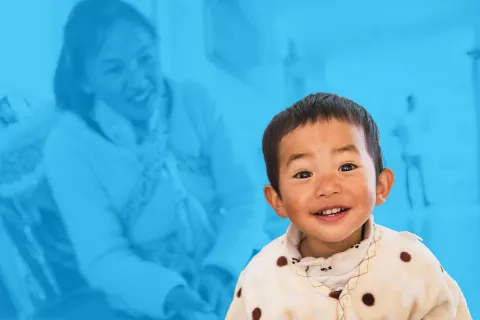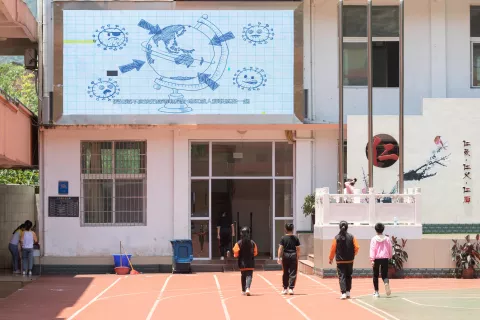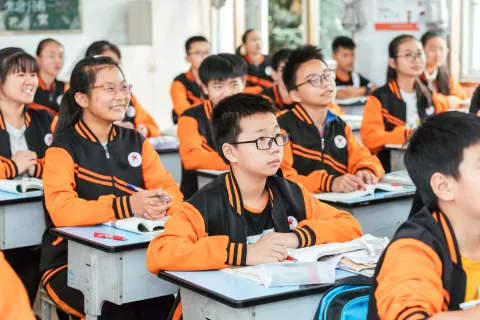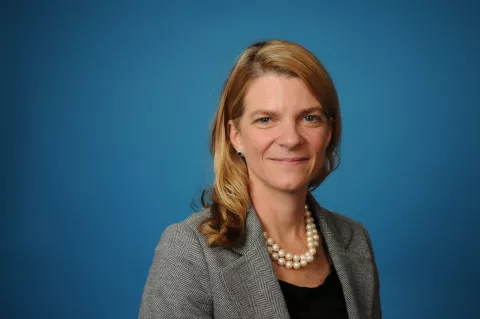What’s it like for children going back to school?
As part of UNICEF’s work to reimagine a better world for all children after COVID-19, UNICEF China is helping children get back to school safely.
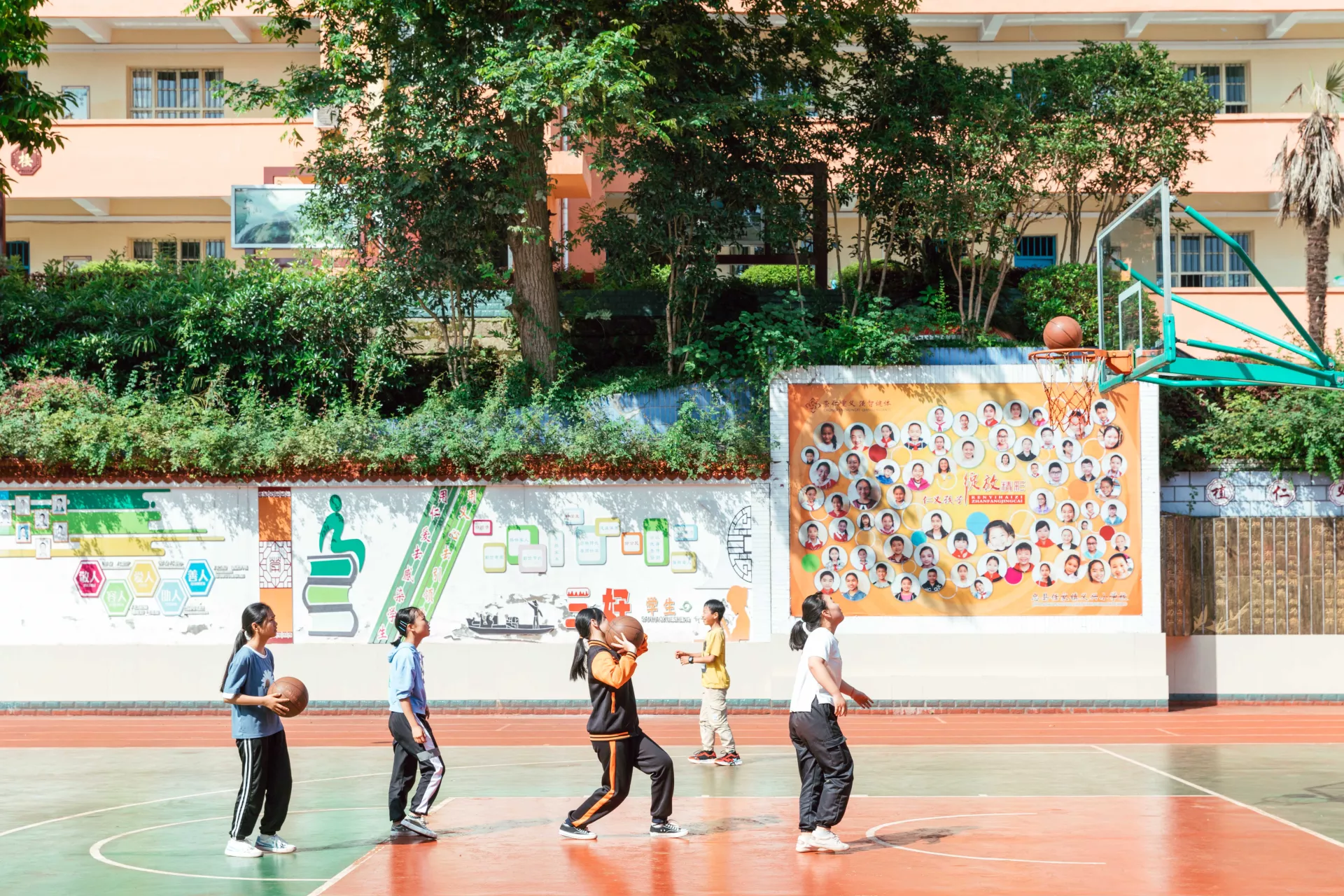
- Available in:
- 中文
- English
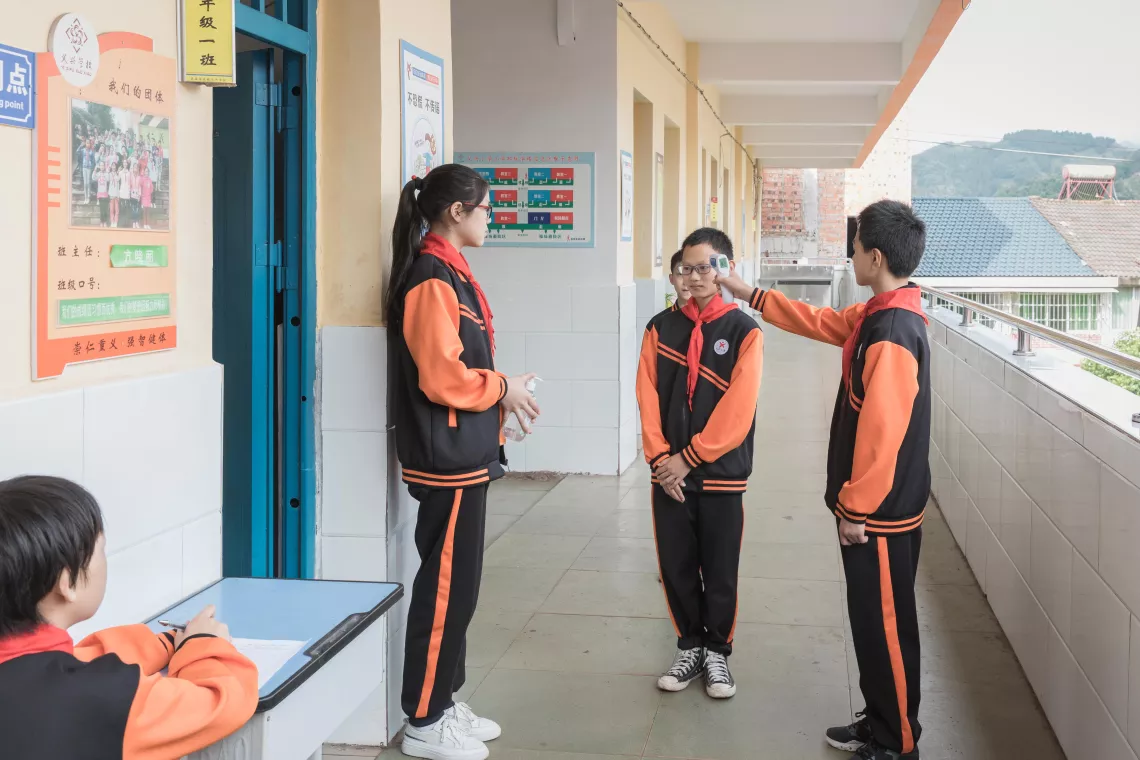
To help make the return to school safe and healthy for all children in China, UNICEF, the Ministry of Education and the Chinese Center for Disease Control and Prevention jointly launched the Safe School Return Campaign. For UNICEF, this is part of our work to not only respond to the pandemic, but also to reimagine a better world for children after COVID-19. We saw the need for this campaign in the early days of the pandemic, after listening to children and young people. Towards the end of March, we surveyed 18,266 students, 27,452 parents and 4,948 teachers to gauge their understanding of COVID-19 and how it can be prevented, as well as their attitudes and concerns about the resumption of the school year.
Based on this information, and international experience of responding to other outbreaks, we developed key information and messages for children, parents and teachers, and delivered them through posters and videos. In addition to promoting good health practices, we focused on children’s psychological needs, as well as preventing discrimination and bullying. UNICEF and our partners shared the videos and posters through every method we could: online, in print, and broadcast on TV. Working with the Ministry of Education, we aimed to reach 614,000 schools, and 235 million children.
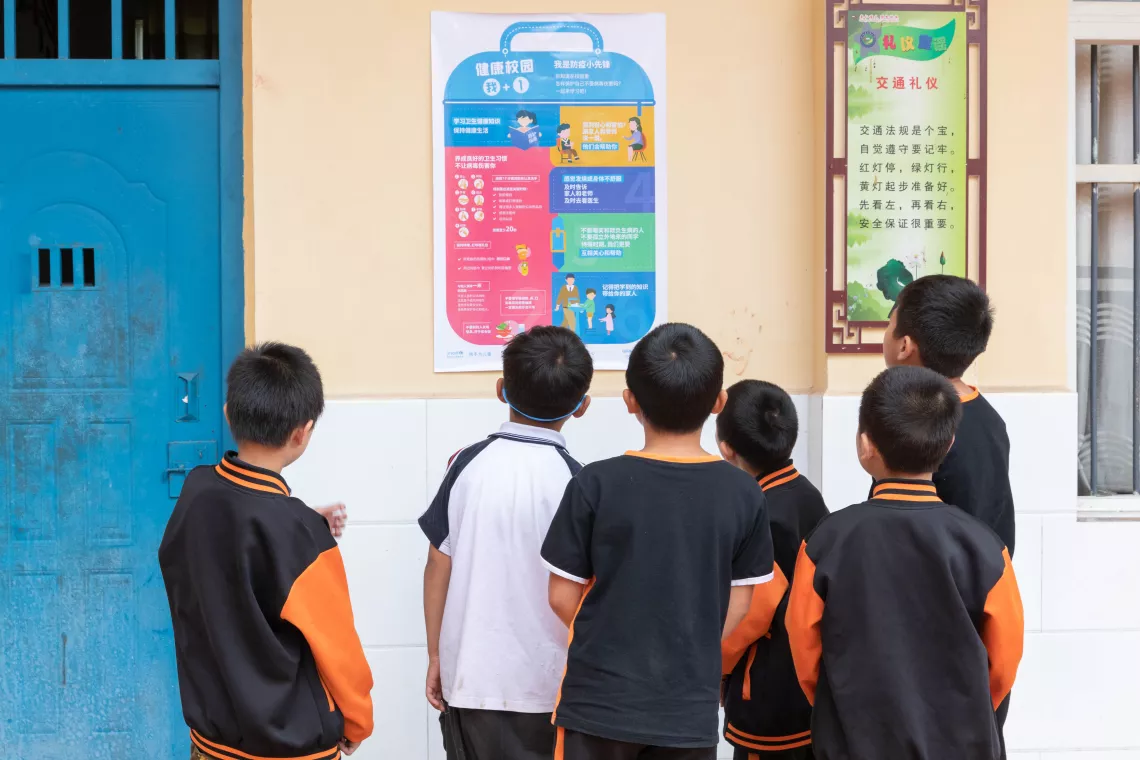
At the school in Zhong County, I saw with my own eyes the help that these messages provided to children, which was very gratifying. During recess, I saw a group of children gather around one of the posters. I leaned over to ask if they liked the poster. They smiled, and said they liked it. I asked which message was their favorite, and to my surprise they all pointed to "Don’t tease or bully anyone who has been sick. Don’t blame or exclude those from other regions or countries. Be supportive to each other." It was clear that these children had voiced an important truth: in extraordinary circumstances, it is even more important to care for and help each other.
Later on, we interviewed some teenagers on their opinions towards the posters. One girl in the eighth grade at Yixing School said: “I didn’t know before [I saw the poster] that I could communicate with classmates and teachers. We definitely experienced a burden and worried about the epidemic when we had to stay at home for so long. We can actually talk to teachers and let them know all our worries. They can help us.” A boy in seventh grade at the same school told us he also found the poster helpful. “For example, it teaches us to welcome people coming back from other parts of the country, and make sure we don’t exclude them. I didn’t know this before, and I have seen many people exclude those coming back from other places.” I was moved by the children’s simple words. The physical and supply needs arising from the pandemic are usually obvious, but the psychological needs are often ignored because they are harder to see. At UNICEF we work to meet children’s psychological needs; sometimes, even a simple sentence can bring them warmth and strength.
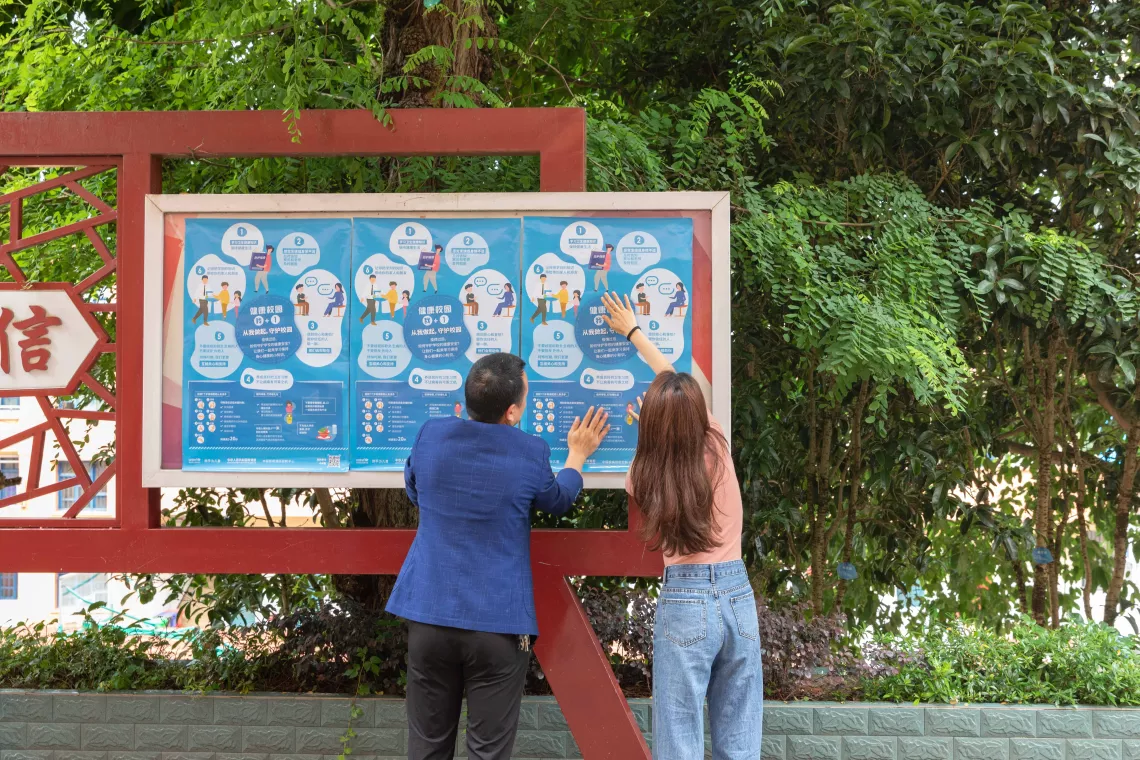
As I chatted with teachers, I learned more about the issues that students faced as they returned to school. After months of self-quarantine and studying online, students are experiencing difficulties in returning to normal learning and adapting to the fast-paced teaching schedule. Senior students in particular are feeling the pressures of entering the next level of education. To help, UNICEF translated the Inter-Agency Network for Education in Emergencies (INEE) Guidance Note on Psychosocial Support. It provides frontline education workers with practical tips to help children retrieve a sense of control and confidence in learning by building a supportive and stimulating environment with diverse learning opportunities.
2020 is an extraordinary year for everyone. It has given me a deeper understanding of my work. When I first came to UNICEF, I couldn’t figure out what the full name of UNICEF meant because it didn’t match in Chinese. I later learned that the original name of UNICEF was ‘The United National International Children’s Emergency Fund’, and that it was established to help children affected by the Second World War. Although times have changed, the mission remains, and our history of responding to crises proves that we can do anything when we pull together. COVID-19 is a child’s rights crisis with immediate costs for children that, if unaddressed, may persist throughout their lives. To help children everywhere, UNICEF has translated the Safe School Return Campaign materials into several languages and distributed them across East Asia and the Pacific, Latin America and the Caribbean. We will continue to work together to reimagine a better world, for every child.
Watch now
Students and teachers share their experiences of going back to school


